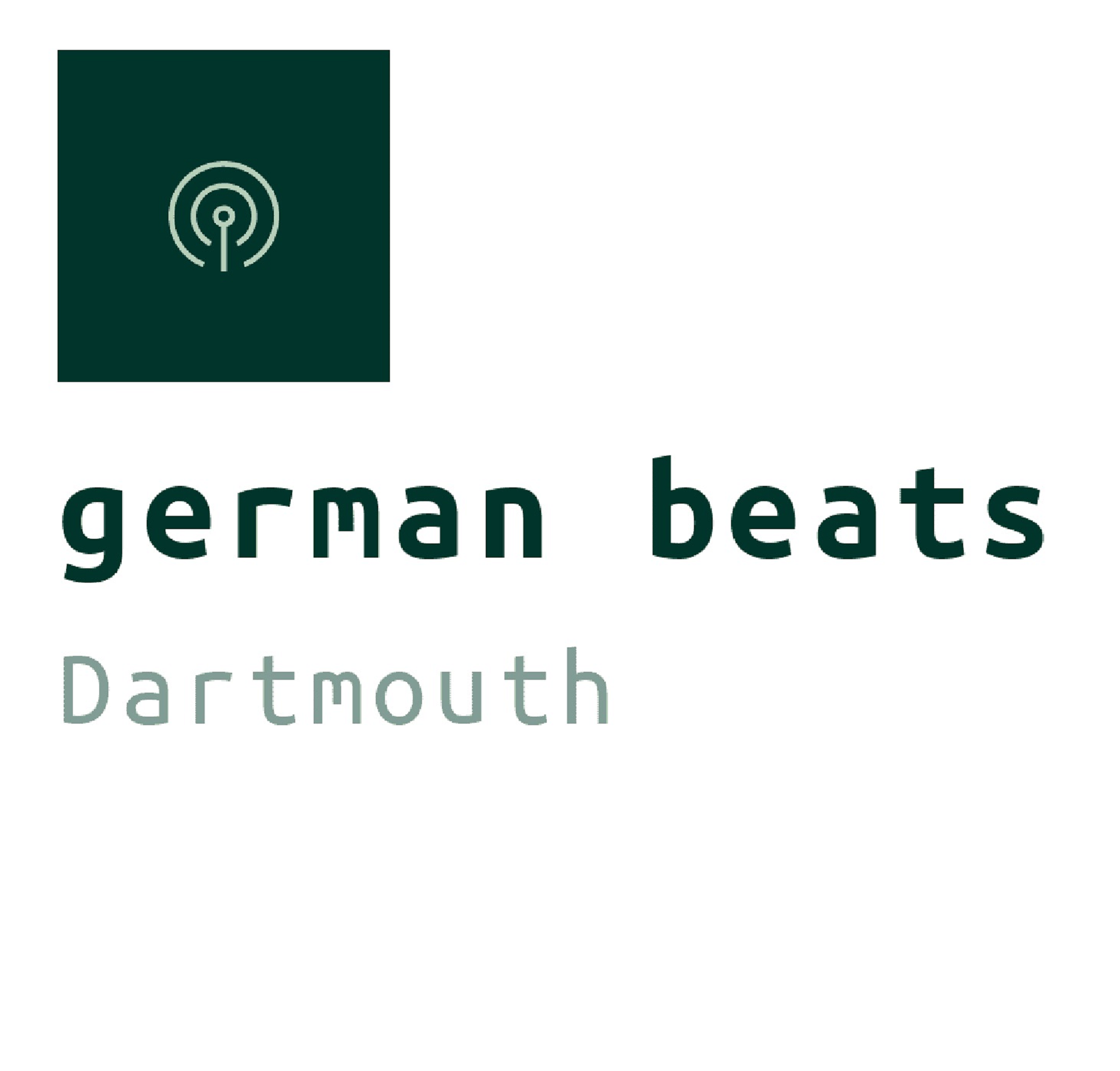Episodes

Wednesday Aug 27, 2025
Meet our new Austrian Fulbright TA Chlodwig Petzl
Wednesday Aug 27, 2025
Wednesday Aug 27, 2025
Listen as Chlodwig Petzl from Vienna sends a greeting and introduces himself to our campus community for AY 25-6.
Email: Chlodwig.Petzl@dartmouth.edu
Every year, a German or Austrian student sponsored by the U.S. Department of State's Bureau of Educational and Cultural Affairs comes to Dartmouth and enhances our beginning and intermediate language curriculum.
The Fulbright TA helps Dartmouth students perform communicative tasks, facilitates structured conversations, organizes social events, and offers a young person's perspective on life in the German-speaking countries, and also serves as Resident Advisor at the Max Kade German Center.
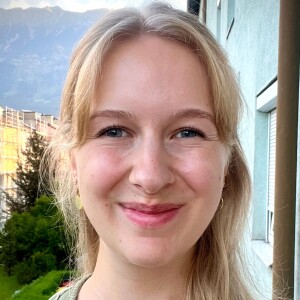
Friday Aug 09, 2024
Introducing the AY 24-5 German Studies Fulbright TA Miriam Brauns
Friday Aug 09, 2024
Friday Aug 09, 2024
Listen as our incoming Fulbright German Language Teaching Assistant for the new academic year introduces herself. Miriam is looking forward to support our learners.
Background:
Every year, a German or Austrian student sponsored by the U.S. Department of State’s Bureau of Educational and Cultural Affairs comes to Dartmouth and enhances our beginning and intermediate language curriculum.
The Fulbright TA helps Dartmouth students perform communicative tasks, facilitates structured conversations, organizes social events, and offers a young person's perspective on life in the German-speaking countries. She or he also serves as Resident Advisor at the Max Kade German Center.
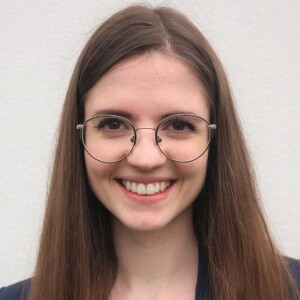
Wednesday Jun 21, 2023
Introducing AY 23-24 German Studies Fulbright TA Karin Heider
Wednesday Jun 21, 2023
Wednesday Jun 21, 2023
For the last two years, Karin has been working as an elementary school teacher and has held a teacher education seminar at the University College of Teacher Education of Styria, Austria.
Karin is looking forward to learning more about American life and culture, meeting new people, and gaining many new experiences.
Karin is also excited to give Dartmouth students "an insight into Austrian culture" when assistant-teaching our German courses.
"I can't wait to meet you and see you soon," says Karin.

Tuesday Aug 23, 2022
Welcome: Meet our new Fulbright TA for AY 22-23
Tuesday Aug 23, 2022
Tuesday Aug 23, 2022
Austrian student Winfried Stangl will be our Foreign Language Teaching Assistant in AY 22-23.
Winfried is currently studying English in Innsbruck and says that he is looking forward to "teaching German in New Hampshire and bringing Austrian culture into the classroom."
Our FLTA is the live-in resident advisor for our German Housing community at the Max Kade Center and the German Club liaison, German language tutor, and assistant teacher for German 3 in our beginning language sequence.
Welcome, Winfried. We are looking forward to meeting you!
You can find out more about studying German at Dartmouth on our official German Studies website.

Monday Jun 06, 2022
Monday Jun 06, 2022
What is literature? Author Ulrike Draesner on literature and writing
German Studies department chair, Klaus Mladek, interviews Max Kade Distinguished Visiting Professor Ulrike Draesner.
As we celebrated the achievements of the German Studies community at the End of Year Party, we were sad to say goodbye to Max Kade Distinguished Visiting Professor Ulrike Draesner.
Klaus Mladek’s interview with Ulrike Draesner offers a glimpse into the author’s thoughts on the world of writing.
Read an excerpt of the interview below or listen to the entire conversation.
What is literature?
Wow, such a small question to begin with! But, for me, literature is not black and white. Rather, literature is the individuality of a person. It is a place where one's unique and individual thoughts are formed, built, and put together.
Why do you write?
At the end of the day, I write because it is what I am able to do best. Writing is a place where I am able to bring my empathy and basic curiosity together. Writing brings together one’s body and mind in the form of words. It is nourishment for the body and mind.
What is, for you, the relation between literature and the political?
In my opinion, I don't think any type of language is non-political. Every word has a history. Therefore, every word is political. Because an individual learns from the history behind every word, I think that literature is a rich source of knowledge on how people's bodies and minds interact.
What do you enjoy most about writing?
I enjoy the craftiness of literary invention. I feel I broaden my perception of the world through literature. The most beautiful aspect of writing is when a voice, a character, a poem comes to you. When this happens, I feel as if I am dissolved by what I am writing while at the same time, my writing is holding such an intense presence in my life. In these moments, I feel entirely present in my writing and with my mind and body, just without my ego. Reality and everything almost goes through me. My entire being and history is feeling this sensation. I get goosebumps.

Tuesday Jun 29, 2021
When the Princess Woke: Briar Rose's Nightmare by Olivia Kester | 29 July 2021
Tuesday Jun 29, 2021
Tuesday Jun 29, 2021
Enrolled in German 14 Into the Woods: The Brothers Grimm and the European Folktale Tradition | Spring 2021, Olivia Kester composed and performed an original song around the discussion of female folktale characters, including such well-known princesses as Briar Rose and Snow White, who are woken by a male figure's kiss without the ability to give consent.
Olivia says the project is based on the dreams of Briar Rose as she awaits her knight in shining armor to come rescue her from the curse of a hundred-year-sleep but that her nightmare really begins once she is awoken. "My reading of the tale was about consent," Kester says. "Or, rather the lack of it. While the story maintains that they get married and live “happily ever after” there isn’t much substance to their supposed “love.” [Briar Rose's] curse states that the only way it could be broken is by true love’s kiss. However, if true love’s kiss is supposed to wake up the princess, how could a sleeping princess, who had no idea this prince existed in the first place, ever fall in love with him? The answer is that she physically can’t."
Kester grew up with the narrative about true love's kiss but through music has found a way to interpret the iconic scene in an entirely new way for future generations.
"The importance of Briar Rose shouldn’t be about the power of true love’s kiss, but rather the importance and necessity for consent. This is why my piece reflected a soothing dream sequence in the beginning and then changed to jarring, horror movie-like sounds."
By Nick Ostrau
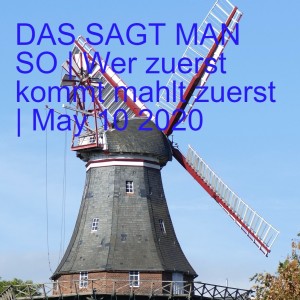
Monday May 10, 2021
DAS SAGT MAN SO | Wer zuerst kommt mahlt zuerst | May 10 2020
Monday May 10, 2021
Monday May 10, 2021
Woher kommen unsere deutschen Sprichwörter? Meine Oma erklärt's.
malen to draw
mahlen to grind
Mühle, f. mill
Mehl, n. flour
Bauern, pl. farmers

Friday Mar 12, 2021
Friday Mar 12, 2021
Genghe's text was submitted in German 3: Beginning German Language and Culture at Dartmouth College.
The theme for this year's writing competition was Land in Sicht:
Ende der Durststrecke (fig.) · Hoffnungszeichen · (endlich) Land sehen (fig.) · Licht am Ende des Tunnels (fig.)
The author is reading their work.
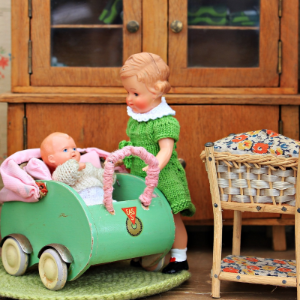
Monday Dec 14, 2020
Monday Dec 14, 2020
Alle Jahre wieder warten Kinder in Deutschland auf den 24. Dezember. Sie haben nur eine Frage: Was liegt dieses Jahr wohl unter dem Weihnachtsbaum? Ein Legoset, ein Computerspiel oder ein Teddybär?
Das Spielzeug hat in Deutschland eine lange Geschichte. Womit die Kinder spielen reflektierte schon immer was die Kinder über ihre Kultur lernen sollen.
Aber welche Spielzeuge lagen in den Epochen der deutschen Geschichte im Trend?
Spielzeug, n = toys
Reiter, pl = riders
Pferde, pl = horses
Puppenhaus, n = doll house
Waffen, pl = weapons
purzeln = to tumble
Brettspiele, pl = board games
Schach, n = chess
Kaufmannsladen, m = grocery store
Baukasten, m = building/ construction set
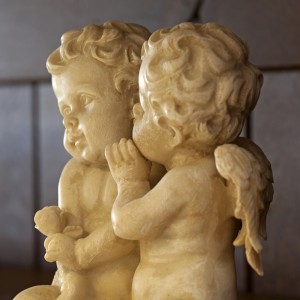
Thursday Sep 03, 2020
WOHER KOMMST DU? | Die Neugier | 3 September 2020
Thursday Sep 03, 2020
Thursday Sep 03, 2020
Die Neugier (altsächsisch: fehugiri).
Wenn wir zu viele Privatinformationen von anderen Leuten haben wollen, sind wir dann neugierig, habgierig oder wissbegierig? Und woher kommt eigentlich dieses Wort Neugier, neugierig sein? Wir wollen es wissen.

